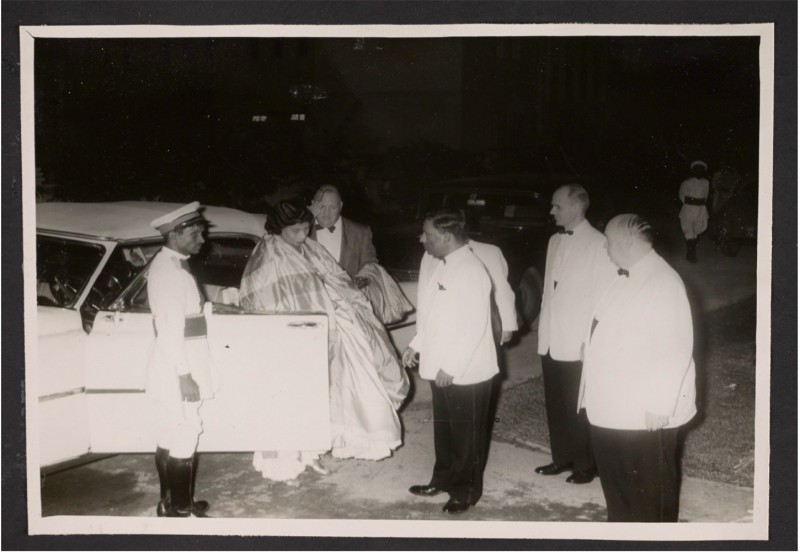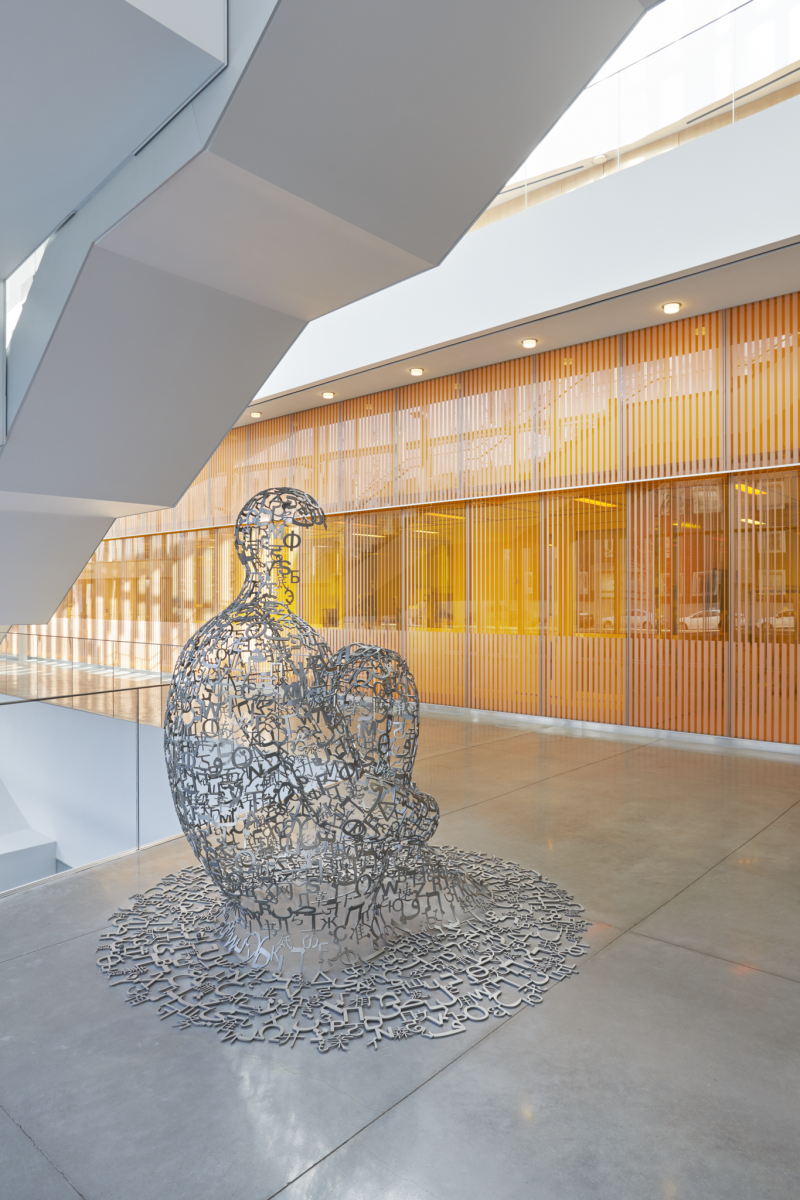Gustavo D. Aguirre: American Association for the Advancement of Science Fellow
_Gustavo_2-9-16.jpg) Gustavo D. Aguirre, professor of medical genetics and ophthalmology at Penn Vet, was formally recognized as a Fellow of the American Association for the Advancement of Science (AAAS) on February 17 at the Fellows Forum at the AAAS Annual Meeting. The AAAS is the world’s largest general scientific society and publisher of the journal Science.
Gustavo D. Aguirre, professor of medical genetics and ophthalmology at Penn Vet, was formally recognized as a Fellow of the American Association for the Advancement of Science (AAAS) on February 17 at the Fellows Forum at the AAAS Annual Meeting. The AAAS is the world’s largest general scientific society and publisher of the journal Science.
Dr. Aguirre was selected for “distinguished contributions to the field of inherited blindness, particularly for the identification of blindness-causing genes and development of gene therapy to treat blindness.” His research has investigated the genetic basis of a variety of inherited vision disorders, including Leber’s congenital amaurosis, Best disease, achromatopsia and retinitis pigmentosa. His work on novel gene therapy approaches to treatment, which deliver to the eye a functional copy of a gene that is otherwise lacking, has restored vision in animal models of X-linked retinitis pigmentosa and Leber’s congential amaurosis. The Leber congenital amaurosis therapy is now commercialized after successful completion of human clinical trials.
Michael Bruchas: Mahoney Institute Rising Star Award
 Michael R. Bruchas, the Henry E. Mallinckrodt professor in anesthesiology and neuroscience at Washington University School of Medicine, St. Louis, is the recipient of the inaugural Rising Star Award in neuroscience research, awarded by The Mahoney Institute for Neurosciences (MINS) at Penn. To highlight the Year of Addiction Research on Penn’s campus, the 2018 award honors a young researcher for outstanding contributions to addiction research. The award will be given annually to highlight a particular field of neuroscience research. He will receive $10,000 and deliver a presentation at the MINS 34th annual retreat and symposium on April 11.
Michael R. Bruchas, the Henry E. Mallinckrodt professor in anesthesiology and neuroscience at Washington University School of Medicine, St. Louis, is the recipient of the inaugural Rising Star Award in neuroscience research, awarded by The Mahoney Institute for Neurosciences (MINS) at Penn. To highlight the Year of Addiction Research on Penn’s campus, the 2018 award honors a young researcher for outstanding contributions to addiction research. The award will be given annually to highlight a particular field of neuroscience research. He will receive $10,000 and deliver a presentation at the MINS 34th annual retreat and symposium on April 11.
Dr. Bruchas’s research interests include the neurobiology underlying drug use and abuse, with a focus on the central and peripheral nervous system. He is working to discover how GPCR receptor systems function in the context of addiction and treatment. He has identified new pathways that might ultimately influence positive and negative behavioral responses that contribute to substance-abuse disorders.
Kevin Chen: Churchill Scholarship
Penn senior Kevin Chen of Fremont, California, has been selected for a Churchill Scholarship from the Winston Churchill Foundation, which will allow him to study abroad for a year at Churchill College at the University of Cambridge in the U.K.
A Vagelos Scholar and Goldwater Scholar, Mr. Chen has been working in Yale E. Goldman’s lab in Penn’s department of physiology since 2015. He developed optical devices for sensing single molecules in biochemical reactions and used the technique to study the mechanisms of drugs that treat genetic disease.
Sarah Schneider Kavanagh: McDonnell Foundation Grant
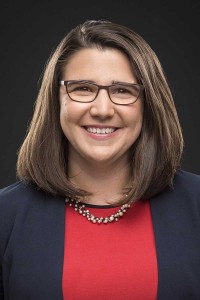 Sarah Schneider Kavanagh, research assistant professor in the Graduate School of Education, and a cross-institutional team of researchers have recently been awarded a $2.5 million grant from the James S. McDonnell Foundation to conduct a research study investigating how teachers learn to support disciplinary argumentation when facilitating classroom discussions. Focusing on understanding how instructional tools influence how teachers make sense of their practice as discussion facilitators, the study will be conducted across five years as a collaboration between researchers at four institutions: The University of Pennsylvania, the University of Wisconsin, The University of Colorado, and The University of Washington.
Sarah Schneider Kavanagh, research assistant professor in the Graduate School of Education, and a cross-institutional team of researchers have recently been awarded a $2.5 million grant from the James S. McDonnell Foundation to conduct a research study investigating how teachers learn to support disciplinary argumentation when facilitating classroom discussions. Focusing on understanding how instructional tools influence how teachers make sense of their practice as discussion facilitators, the study will be conducted across five years as a collaboration between researchers at four institutions: The University of Pennsylvania, the University of Wisconsin, The University of Colorado, and The University of Washington.
Thomas Sollecito: 2018 Pennsylvania Dental Association Recognition Award
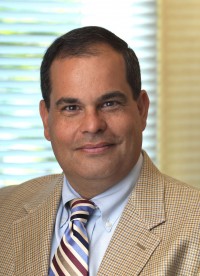 Thomas Sollecito, professor and chair of the department of oral medicine in Penn’s School of Dental Medicine, was recently honored by the Pennsylvania Dental Association (PDA) with the 2018 PDA Recognition Award, which recognizes his clinical care, research and teaching in the areas of oral mucosal diseases, head and neck tumors/cancer TMD and HIV dental treatment. The award will be presented at a ceremony on April 13.
Thomas Sollecito, professor and chair of the department of oral medicine in Penn’s School of Dental Medicine, was recently honored by the Pennsylvania Dental Association (PDA) with the 2018 PDA Recognition Award, which recognizes his clinical care, research and teaching in the areas of oral mucosal diseases, head and neck tumors/cancer TMD and HIV dental treatment. The award will be presented at a ceremony on April 13.
An educator for more than 25 years, Dr. Sollecito joined the Penn Dental Medicine faculty after completing his oral medicine residency here in 1991. He has the led the Department of Oral Medicine since 2009.
Jonathan A. Supovitz: Nellie Mae Education Foundation Grant
Jonathan A. Supovitz, professor in the Graduate School of Education and director of the Consortium for Policy Research in Education (CPRE), has received an award of $450,000 from Nellie Mae Education Foundation for the project, The Study of Teacher Leadership in the United States. The project first scans the teacher leadership program environment in the U.S. and then identifies two promising programs for an in-depth, mixed-method investigation of their implementation and impacts on teacher leaders, teachers and students.
Master of Applied Positive Psychology: "Friend of the ROCK" Award
The LPS Master of Applied Positive Psychology (MAPP) program in the School of Arts & Sciences is the recipient of the “Friend of the ROCK” award in recognition of the service learning projects students in the program have done with The ROCK Center for Youth Development, a non-profit that serves teens in Michigan.
“This has been a mutually beneficial relationship for MAPP,” says Leona Brandwene, associate director of MAPP. “While our contributions have provided support to the organization as they develop their programs, The ROCK has also served as a virtual classroom for our students who are learning to apply research-informed positive psychology applications in the real world.”
The MAPP program was the first in the world to offer a degree in positive psychology.
Penn Language Center: NEH Digital Humanities Advancement Grant
The Penn Language Center (PLC) has been awarded an NEH Digital Humanities Advancement Grant entitled Digital Humanities from an Indigenous Perspective, which will be administered by EPIC (Educational Partnerships with Indigenous Communities). The grant will study how Native American tribes are using digital technology to revitalize their language and culture. The partnership will include four Native American partners and four major archives. The archives will digitally repatriate photographs, stories, songs, and language materials to the tribal partners to build digital archives in each community. The tribes will work with the University of Pennsylvania’s Penn Museum, Price Lab for Digital Humanities and the Native American and Indigenous Studies program to create digital exhibits to illustrate the unique ways Indigenous communities are utilizing technology for language instruction and the preservation of traditional knowledge.
Penn Electric Racing: Philadelphia Auto Show
REV 3, a car from Penn Electric Racing, a club run by Penn students that designs and creates their own electric vehicles, was featured at the 117th Philadelphia Auto Show from January 27 to February 4. The car, REV 3, won first place overall at the Formula North Electric and Formula SAE competitions last year.
Penn Provost Wendell Pritchett and Vice Provost for Faculty Anita Allen are pleased to announce the appointment of the tenth cohort of Penn Fellows.
The Penn Fellows Program provides leadership development to select Penn faculty in their mid-career. Begun in 2009, it includes opportunities to build alliances across the University, meet distinguished academic leaders, think strategically about University governance and consult with Penn’s senior administrators.
This year’s cohort:
Benjamin Abella, professor of emergency medicine and director of the Center for Resuscitation Science in the Perelman School of Medicine, studies sudden cardiac arrest, a leading cause of death that claims over 300,000 lives each year in the United States.
Ritesh Agarwal, professor of materials science and engineering in the School of Engineering and Applied Science, is developing techniques for the rational synthesis of functional nanostructural materials for applications in nanophotonic and electronic devices.
José A. Bauermeister, Presidential Associate Professor of Nursing in the School of Nursing, researches comprehensive HIV/STI prevention and care programs for high-risk adolescents and young adults, including young gay, bisexual and other men who have sex with men (YGBMSM); perinatally HIV-infected and HIV-affected youth; and racial/ethnic minorities living in urban centers.
Elizabeth Brannon, Edmund J. and Louise W. Kahn Professor in the Natural Sciences in the School of Arts and Sciences, researches the evolution and development of quantitative cognition, studying how adult humans, infants, young children and nonhuman animals without language represent numbers.
Samantha Butts, associate professor of obstetrics and gynecology in the Perelman School of Medicine, is a reproductive epidemiologist who has made research contributions toward developing a better understanding of how key micronutrients and environmental chemicals affect reproductive health in women and their offspring.
André Dombrowski, associate professor of history of art in the School of Arts and Sciences, focuses his research and teaching on the arts and material cultures of France and Germany, and their empires, in the mid- to late-nineteenth century.
Zahra Fakhraai, associate professor of chemistry in the School of Arts and Sciences, focuses on understanding the influence of surfaces and interfaces on the properties of amorphous materials at nanometer length scales.
Tulia Falleti, Class of 1965 Associate Professor of Political Science and Director of the Latin American and Latino Studies Program in the School of Arts and Sciences, is a scholar of comparative politics with a focus on Latin America.
Autumn Fiester, assistant professor of medical ethics in the Perelman School of Medicine, is director of the Penn Program in Clinical Conflict Management, which promotes conflict resolution training for formal clinical ethics consultations and ethics conflicts at the bedside.
Michael Hanchard, professor of Africana studies in the School of Arts and Sciences, is a scholar of comparative politics specializing in nationalism, social movements, racial hierarchy and citizenship.
Jennifer Kogan, professor of medicine in the Perelman School of Medicine, focuses her research on assessment in medical education, particularly feedback, competency assessment and developing and assessing the effectiveness of new approaches for faculty development in workplace-based assessment.
Serguei Netessine, professor of operations, information and decisions in the Wharton School, focuses his research on business model innovation and operational excellence while using a broad set of econometric tools to analyze data that focuses on strategic customer behavior in operational settings.
Rose Nolen-Walston, associate professor of medicine in the School of Veterinary Medicine, has a clinical specialty in large animal medicine with a research focus on equine encephalitis, equine endotoxemia/sepsis models, equine pulmonary function, histamine bronchoprovocation and large animal emergency.
Melissa Sanchez, associate professor of English and comparative literature in the School of Arts and Sciences, studies and teaches sixteenth- and seventeenth-century literature, with a particular focus on gender, sexuality, and constitutional and religious history.
Eric Stoopler, associate professor of oral medicine in the School of Dental Medicine, focuses on the advancement of oral medicine as an integral component of health education and clinical care through the development of postdoctoral oral medicine education.
Deborah Thomas, R. Jean Brownlee Professor of Anthropology in the School of Arts and Sciences, is a cultural anthropologist with a focus on the Caribbean whose research interests include political anthropology, the afterlives of imperialism, transnationalism and diaspora, race and gender and culture and political economy.
Tess Wilkinson-Ryan, professor of law and psychology in Penn Law, studies the psychology of legal decision-making, addressing the role of moral judgment with a particular focus on private contracts and negotiations.
Penn’s Eight 2018 Thouron Award Winners
Six University of Pennsylvania seniors and two alumni have received 2018 Thouron Awards to pursue graduate studies in the United Kingdom. Each scholarship winner receives tuition and stipends for up to two years to earn a graduate degree. The recipients are:
Alexis Montouris Ciambotti from Warren, New Jersey, is majoring in political science with a concentration in international relations in the School of Arts and Sciences. A 2018 Dean’s Scholar, she is a former Perry World House Student Fellow and a former Fellow of the Penn Program on Democracy, Citizenship and Constitutionalism, now the Andrea Mitchell Center for the Study of Democracy. She previously served as a John Thouron Summer Scholar at the University of Cambridge.
Isabella Cuan from Sparta, New Jersey, is majoring in the biological basis of behavior and minoring in the history of art in the School of Arts and Sciences. A 2016 Thouron Summer Prize recipient, she has conducted research in cognitive decision-making, health services, digital photography and narrative medicine. She volunteers at the United Community Clinic in Philadelphia, and as a writing tutor at the Marks Family Writing Center at Penn. She also contributes to the Perelman School of Medicine-based platform Doctors Who Create.
Gina Liu from Charleston, Illinois, is in the Roy and Diana Vagelos Program in Life Sciences & Management, studying biology and business with concentrations in computational biology and statistics. A research assistant in Penn’s department of biostatistics, epidemiology and informatics, her interests lie in injury and violence prevention. She’s also a computer science teaching assistant, a board member of Penn Boxing and a volunteer at the Penn Wissahickon Hospice.
Ashley Marcus from Golden Beach, Florida, is majoring in communication with a concentration in political communication, in the Annenberg School for Communication. An NCAA athlete and Student-Athlete Advisory Committee member, she also works as an anti-violence educator and advocate, giving presentations on sexual violence and bystander intervention and encouraging Penn athletes to take the “It’s on Us” pledge to recognize and take action against sexual assault.
Nicholas Stiansen from Saratoga Springs, New York, studies bioengineering with a focus on medical devices. At Penn, he works as an undergraduate research assistant in Beth Winkelsein’s Spine Pain Research Laboratory, studying cervical spine biomechanics. He’s also a teaching assistant for a junior-level bioengineering lab course and has served as the president of the Engineering Deans’ Advisory Board and as the treasurer of the Biomedical Engineering Society.
Justin Hopkins from Glendale, California, will graduate with a bachelor’s degree with honors in political science in May. A Civic Scholar and previous recipient of the Thouron Summer Prize, he is studying the extent to which automation influences right-wing populist movements. He co-founded a non-profit organization, The Locus Initiative, which connects and mobilizes millennials around charitable giving.
John Paul Hagan, a 2016 graduate, majored in psychology with minors in the biological basis of behavior and political science from the School of Arts and Sciences. At Penn, he researched the neuropsychological processes behind economic decisions and how cognitive processes influence moral judgments. Building on that research, he plans to study topics related to normative judgment and decision-making, an interdisciplinary field that bridges psychology, philosophy and policy.
Emily Zinselmeier, a 2017 graduate, majored in materials science and engineering in the School of Engineering and Applied Science, and also majored in architecture with a minor in Hispanic studies from the School of Arts and Sciences. She co-founded Penn’s chapter of the American Academy of Environmental Engineers and Scientists, led fundraising efforts for the Global Architecture Brigades and worked with the Center for Analyzing Evolved Structures as Optimized Products to explore biometric composite systems and their potential applications.
Established and supported through gifts from Sir John Thouron and Esther du Pont, Lady Thouron, the Thouron Award is a graduate-exchange program between the University of Pennsylvania and British universities that aims to improve relations between the United States and the United Kingdom.
The Center for Undergraduate Research and Fellowships serves as Penn’s primary information hub and support office for students and alumni applying for major grants and fellowships, such as the Thouron Award. Penn seniors, current graduate or professional students and recent graduates who are U.S. citizens are eligible to apply.
 Eric Tchetgen Tchetgen has been named the inaugural Luddy Family President’s Distinguished Professor at the Wharton School of the University of Pennsylvania. Thomas M. Luddy, WG’76, and Janice Hotra Luddy, WG’77, generously endowed the Luddy Family President’s Distinguished Professorship for faculty appointments at the Wharton School with a gift of $3 million.
Eric Tchetgen Tchetgen has been named the inaugural Luddy Family President’s Distinguished Professor at the Wharton School of the University of Pennsylvania. Thomas M. Luddy, WG’76, and Janice Hotra Luddy, WG’77, generously endowed the Luddy Family President’s Distinguished Professorship for faculty appointments at the Wharton School with a gift of $3 million.
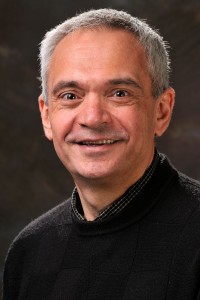 Tony Pantev, professor of mathematics in the School of Arts & Sciences, has been appointed Class of 1939 Professor of Mathematics. Dr. Pantev is a leading scholar of algebraic and differential geometry, Hodge theory and mathematical physics.
Tony Pantev, professor of mathematics in the School of Arts & Sciences, has been appointed Class of 1939 Professor of Mathematics. Dr. Pantev is a leading scholar of algebraic and differential geometry, Hodge theory and mathematical physics.  The University of Pennsylvania Law School has received a $3 million gift from Robert Toll, L’66, and Jane Toll, GSE’66, to create and launch the new Toll Public Service Corps, while expanding the Toll Public Interest Scholars program, and funding additional financial and career support for alumni through loan forgiveness.
The University of Pennsylvania Law School has received a $3 million gift from Robert Toll, L’66, and Jane Toll, GSE’66, to create and launch the new Toll Public Service Corps, while expanding the Toll Public Interest Scholars program, and funding additional financial and career support for alumni through loan forgiveness. Stanislawa (Siasia) Sandecka Nowicki, an emeritus professor of architecture in what was the School of Fine Arts, now the School of Design, died in Alexandria, Virginia, on February 18. She was 105 years old.
Stanislawa (Siasia) Sandecka Nowicki, an emeritus professor of architecture in what was the School of Fine Arts, now the School of Design, died in Alexandria, Virginia, on February 18. She was 105 years old. _Gustavo_2-9-16.jpg) Gustavo D. Aguirre, professor of medical genetics and ophthalmology at Penn Vet, was formally recognized as a Fellow of the American Association for the Advancement of Science (AAAS) on February 17 at the Fellows Forum at the AAAS Annual Meeting. The AAAS is the world’s largest general scientific society and publisher of the journal Science.
Gustavo D. Aguirre, professor of medical genetics and ophthalmology at Penn Vet, was formally recognized as a Fellow of the American Association for the Advancement of Science (AAAS) on February 17 at the Fellows Forum at the AAAS Annual Meeting. The AAAS is the world’s largest general scientific society and publisher of the journal Science. Michael R. Bruchas, the Henry E. Mallinckrodt professor in anesthesiology and neuroscience at Washington University School of Medicine, St. Louis, is the recipient of the inaugural Rising Star Award in neuroscience research, awarded by The Mahoney Institute for Neurosciences (MINS) at Penn. To highlight the Year of Addiction Research on Penn’s campus, the 2018 award honors a young researcher for outstanding contributions to addiction research. The award will be given annually to highlight a particular field of neuroscience research. He will receive $10,000 and deliver a presentation at the MINS 34th annual retreat and symposium on April 11.
Michael R. Bruchas, the Henry E. Mallinckrodt professor in anesthesiology and neuroscience at Washington University School of Medicine, St. Louis, is the recipient of the inaugural Rising Star Award in neuroscience research, awarded by The Mahoney Institute for Neurosciences (MINS) at Penn. To highlight the Year of Addiction Research on Penn’s campus, the 2018 award honors a young researcher for outstanding contributions to addiction research. The award will be given annually to highlight a particular field of neuroscience research. He will receive $10,000 and deliver a presentation at the MINS 34th annual retreat and symposium on April 11. Sarah Schneider Kavanagh, research assistant professor in the Graduate School of Education, and a cross-institutional team of researchers have recently been awarded a $2.5 million grant from the James S. McDonnell Foundation to conduct a research study investigating how teachers learn to support disciplinary argumentation when facilitating classroom discussions. Focusing on understanding how instructional tools influence how teachers make sense of their practice as discussion facilitators, the study will be conducted across five years as a collaboration between researchers at four institutions: The University of Pennsylvania, the University of Wisconsin, The University of Colorado, and The University of Washington.
Sarah Schneider Kavanagh, research assistant professor in the Graduate School of Education, and a cross-institutional team of researchers have recently been awarded a $2.5 million grant from the James S. McDonnell Foundation to conduct a research study investigating how teachers learn to support disciplinary argumentation when facilitating classroom discussions. Focusing on understanding how instructional tools influence how teachers make sense of their practice as discussion facilitators, the study will be conducted across five years as a collaboration between researchers at four institutions: The University of Pennsylvania, the University of Wisconsin, The University of Colorado, and The University of Washington. Thomas Sollecito, professor and chair of the department of oral medicine in Penn’s School of Dental Medicine, was recently honored by the Pennsylvania Dental Association (PDA) with the 2018 PDA Recognition Award, which recognizes his clinical care, research and teaching in the areas of oral mucosal diseases, head and neck tumors/cancer TMD and HIV dental treatment. The award will be presented at a ceremony on April 13.
Thomas Sollecito, professor and chair of the department of oral medicine in Penn’s School of Dental Medicine, was recently honored by the Pennsylvania Dental Association (PDA) with the 2018 PDA Recognition Award, which recognizes his clinical care, research and teaching in the areas of oral mucosal diseases, head and neck tumors/cancer TMD and HIV dental treatment. The award will be presented at a ceremony on April 13.![caption: Earliest extant program, Philadelphia, PA, April 6, 1916. Handwritten note on upper left corner stating that $55 in tickets were sold. The program’s description of her: “[Marian] E. Anderson, of Philadelphia, Contralo, is a young singer of great promise and has a rich contralto voice of large range and volume. She is a pupil of one of the best teachers in the city, and has made remarkable strides in a short time.”](/uploads/img/Anderson,_M._earliest_program_cropped.jpg)
